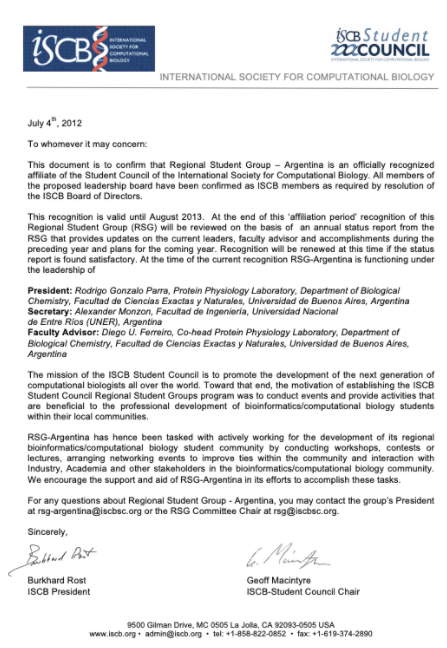
[Thread🧵] Congrats to the 3 #ECCB2022 @ECCBinfo poster winners! Thanks @mygobletorg & @jdelasrivas for funding the prizes!
It was a hard task to do which was conducted by a team of postdocs & early career researchers. We worked in two teams, one for each day session (+)
It was a hard task to do which was conducted by a team of postdocs & early career researchers. We worked in two teams, one for each day session (+)
https://twitter.com/ECCBinfo/status/1572542553286938625

Each session was 1.5 hours long. During the 1st 1/2 hour we screened all posters and selected our favourite 5. Then we selected each reviewer's favourite poster + those posters selected by +1 reviewer. We went through the preselected posters and evaluated them in depth (+)
During the pre-screening we evaluated the poster design, willing of the presenter to explain to the audience and originality (+)
For the final round, we revealed to the candidates that they were pre-selected for a prize and ask them if they wanted to participate in the competence. All candidates accepted (+)
We told them that they had ~5 minutes to explain the poster to us. At the end of the time we were going to make questions to wrap up. Younger people got something in between excited and nervous. We told them to worry not and to be happy instead for being selected (+)
We told them that they were preselected, instead of not telling nothing, because 1) we had to interrupt them if they were presenting (we had no time to loose) & 2) most of them were not going to win.. I think it was already nice for them to know their work was preselected (+)
Our wrapping up question, among others, contained this one: "How would you explain in 2/3 sentences the main message/importance of your research to a scientist not from your field?" We considered summarising capacity to be really important beyond the technical side (+)
We gathered together after the sessions and discussed. Each reviewer scored each presentation from 1 to 10. We agreed to take into account career stage and gender for this. We normalised and scaled the gradings and selected the best 3 from each session (+)
We also got the voting from the public through the conference app. There were 3 posters voted from the public within our top 6 posters. We had two clear winners and the 3rd position was modified by the public's vote (+)
Finally, I want to remark that in general I do not like that in many conferences people from the organisers' teams end up winning. Conscious or not, I consider this is not cool as our biases get in the middle (+)
All posters where authors were related to the reviewers or the reviewers were co-authors were removed from the pre-screening. Two members from the group I belong to were chopped as a result, including my own poster (sorry my friends!! your work was really excellent!) (+)
We had 536 posters! Our procedure was for sure suboptimal. To exhaustively evaluate all posters, would have required approx 120 reviewers to have two votes per poster. No selection procedure is perfect, we did our best within the possible. I think it was fair (+)
Our prizes went to 1 Male bachelor student, 1 female PhD student and 1 female senior postdoc. A nicely diverse group.
I think it would be good to further discuss 1) are poster prizes needed? good for conferences? 2) If yes, can we set up guidelines for their selection? (+)
I think it would be good to further discuss 1) are poster prizes needed? good for conferences? 2) If yes, can we set up guidelines for their selection? (+)
Finally I want to thank all the reviewers who did a great job reviewing the poster submissions through easy chair! It was a really intense work and they did it amazingly (+) 

Finally I want to thank @ECCBinfo #ECCB2022 chairs @sj_capella and @Alfons_Valencia for giving me this opportunity! I have really learned a lot! And thanks to @laurarubinat for all her assistance, without her, I would been totally lost! Thanks and until another conference! [end]
@threadreaderapp please unroll
• • •
Missing some Tweet in this thread? You can try to
force a refresh







